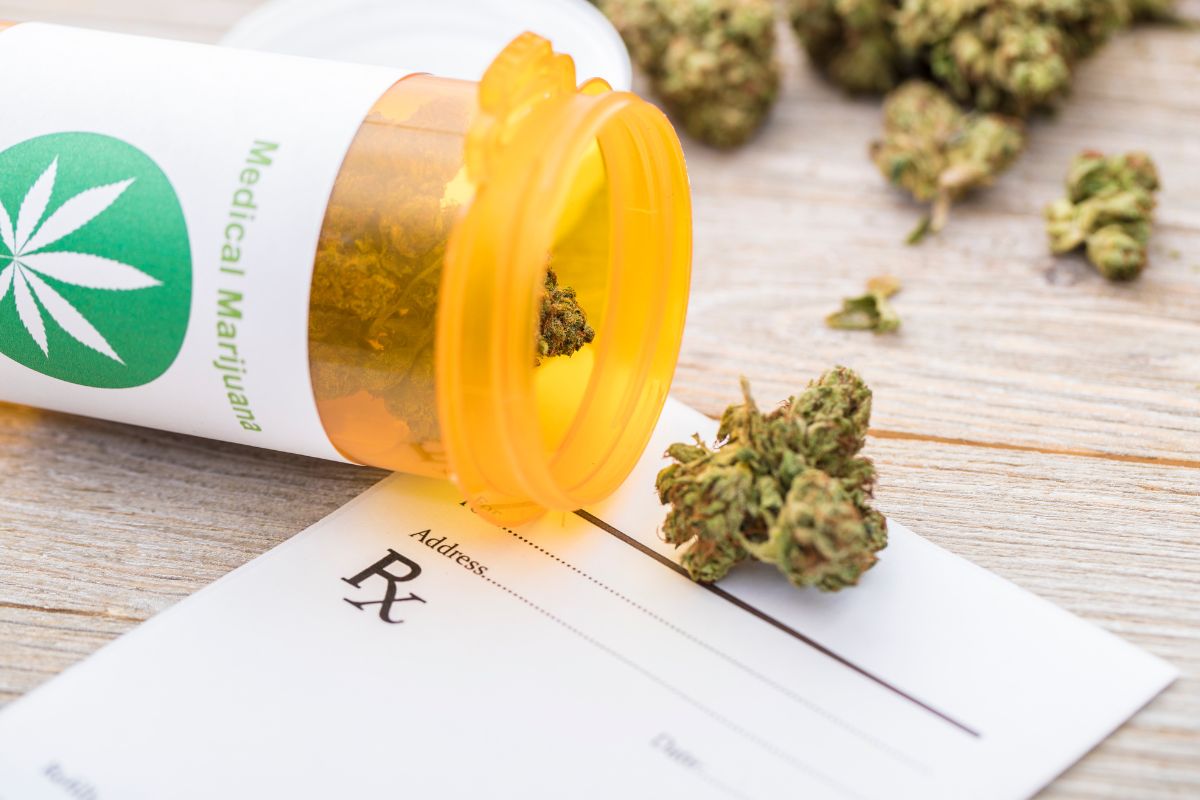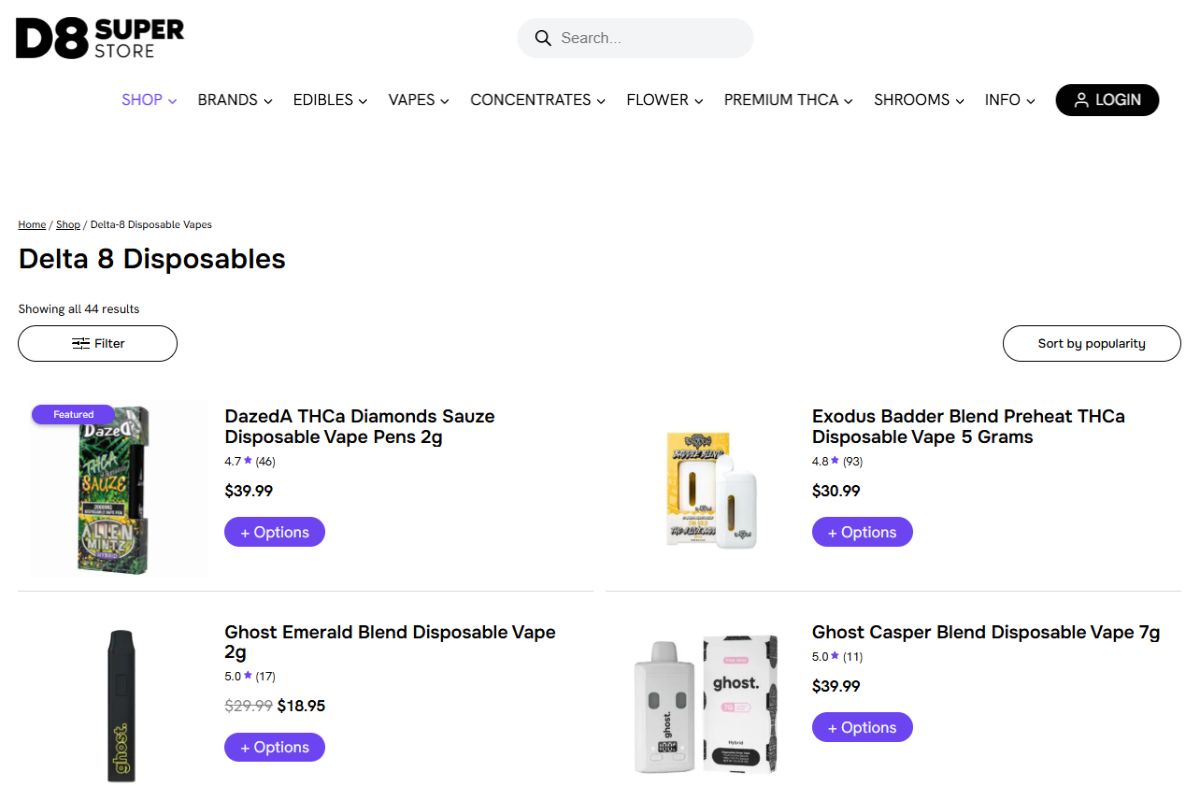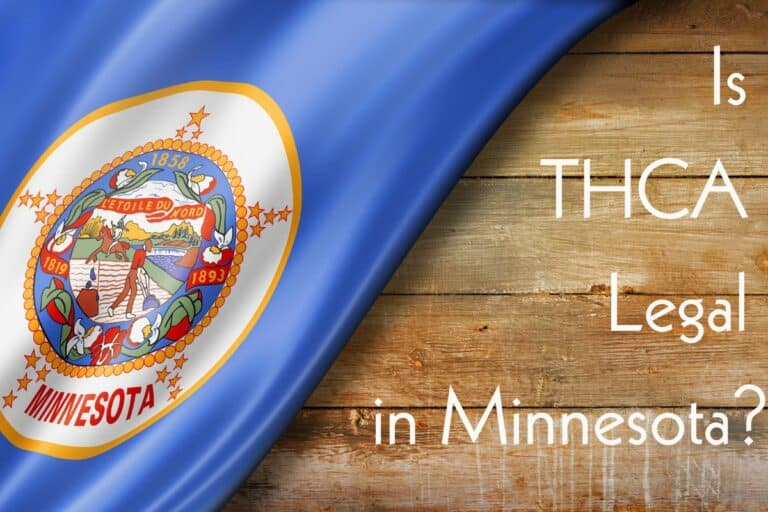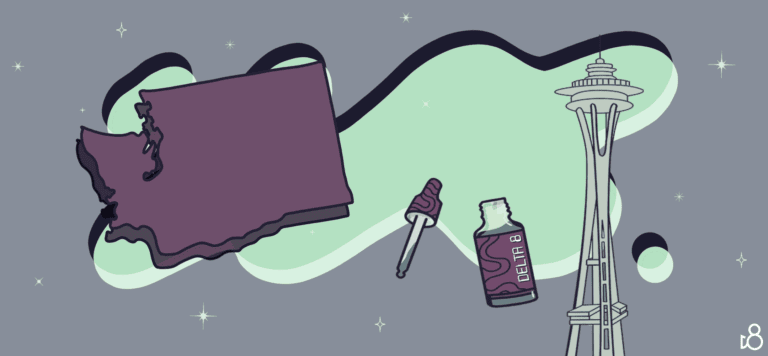Do You Need a Medical Card for Online Dispensary Purchases?
Introduction to Medical Cannabis
Medical cannabis, commonly known as medical marijuana, is used for medical purposes to treat a variety of health conditions for qualified patients. It has become an alternative form of medicine for patients suffering from chronic illnesses where patients register.
- Introduction to Medical Cannabis
- The Growth of the Cannabis Industry
- Medical vs. Recreational Cannabis
- Do Online Dispensaries Require a Medical Card?
- Federal Cannabis Law Overview
- Understanding State Cannabis Laws
- Qualifying for a Medical Marijuana Card
- Common Qualifying Conditions
- Physician Recommendation Requirement
- The Application Process for a Medical Card
- Providing Proof of Identity and Residency
- Medical Records and Documentation
- Paying the Application Fee
- Approval and Card Issuance
- How Long Does It Take to Get a Card?
- Medical Marijuana Card Renewal
- Benefits of Having a Medical Marijuana Card
- Using a Medical Card Online
- Delivery of Medical Cannabis
- Is a Medical Card Required for Recreational Purchases?
- Differences in Product Availability
- Online Dispensary Verification
- County-Specific Medical Cannabis Programs
- Minor Patients and Guardians
- Cannabis for Terminally Ill Patients
- Growing Medical Cannabis at Home
- Traveling with Medical Cannabis
- Legal Protection with an MMJ Card
- Alternatives to Medical Marijuana Cards
- Getting Help with the Application Process
- Summary: Is a Medical Card Needed for Online Purchases?
- FAQ: Do You Need a Medical Card for Online Dispensary Purchases?
- 1. Do I need a medical card to buy cannabis from an online dispensary?
- 2. Can I use a medical card from one state in another state?
- 3. What happens if I don't have a medical card but need medical cannabis?
- 4. Can I apply for a medical card online?
- 5. How long does it take to get a medical marijuana card?
- 6. Can minors apply for a medical marijuana card?
- 7. What conditions qualify for a medical marijuana card?
- 8. Can I buy cannabis from an online dispensary without a medical card in a recreational state?
- 9. What do I need to provide when applying for a medical marijuana card?
- 10. How much does it cost to apply for a medical marijuana card?
The Growth of the Cannabis Industry
The cannabis industry has seen massive growth across the U.S., including various county programs Legal reforms have made cannabis more accessible, both medically and recreationally.
Medical vs. Recreational Cannabis
Medical cannabis is prescribed by a licensed physician for health conditions to qualified patients. Recreational cannabis is used for personal enjoyment without medical approval.
Do Online Dispensaries Require a Medical Card?
In many states, online dispensaries do require a medical marijuana id card for medical-grade products related to qualifying medical condition. However, in states with recreational cannabis laws, adults may buy online without a card.
Federal Cannabis Law Overview
Cannabis remains a Schedule I controlled substance under federal law, despite its use for serious medical conditions. Despite this, individual states have enacted laws that permit medical and recreational use.
Understanding State Cannabis Laws
Each state has its own cannabis regulations and purchasing requirements, such as a california driver license. Some states allow only medical patients of a certain age to access cannabis, while others allow both medical and recreational use.
Qualifying for a Medical Marijuana Card
| Requirement | Details |
|---|---|
| Minimum Age | Typically 18+ (minors may qualify with parental/guardian consent and additional steps) |
| Residency | Must be a resident of the state where you are applying |
| Proof of Identity | Valid government-issued ID (driver’s license, state ID, passport) |
| Qualifying Medical Conditions | Varies by state; common ones include chronic pain, cancer, PTSD, epilepsy, and MS |
| Doctor’s Recommendation | Certification from a licensed physician or approved healthcare provider |
| Medical Records | May be required to provide supporting documentation or medical history |
| Registration Process | Apply through state’s health department or medical marijuana program portal |
| Application Fee | Varies by state; typically $25–$200 (some offer discounts for low-income applicants) |
| Renewal Requirements | Cards must be renewed annually (or as required by state); doctor re-evaluation may be needed |
| Caregiver Option | Allowed in many states for minors or disabled patients; caregivers must also register |
| Possession Limits | Set by each state; includes limits on how much cannabis you can possess or cultivate |
| Out-of-State Recognition | Some states accept other states’ medical cards (reciprocity); others do not |
To obtain a card, patients, or their legal guardian, must have a qualifying condition, such as epilepsy or chronic pain, or declared self sufficiency status. Each state provides a list of acceptable medical conditions for qualification.
Common Qualifying Conditions
Conditions often include cancer, HIV/AIDS, multiple sclerosis, PTSD, and severe pain, which can be treated with various cannabis products. Some states may approve medical cannabis for anxiety, depression, and migraines.
Physician Recommendation Requirement
A recommendation from a licensed doctor is necessary for getting an MMJ card and providing a valid id card. This evaluation typically includes a review of your medical history and symptoms.
The Application Process for a Medical Card

You must complete an application that includes personal information and medical documentation. Most states offer online applications through their health department websites.
Providing Proof of Identity and Residency
Applicants must submit proof of identity, such as a driver’s license, state-issued ID, or other acceptable forms of identification, including a mortgage agreement. Residency must also be verified using a utility bill or lease agreement.
Medical Records and Documentation
Medical records and a birth certificate help verify your qualifying condition. These documents support your application and speed up the approval process.
Paying the Application Fee
Application fees vary by state and can range from $25 to $200, and applicants must provide sufficient proof. Some states offer discounts for seniors, veterans, or low-income individuals.
Approval and Card Issuance
| Step | Description | Typical Timeframe | Notes |
|---|---|---|---|
| 1. Medical Evaluation | Visit a licensed physician for evaluation and recommendation | Same day or within 1–3 days | Must have a qualifying medical condition |
| 2. Physician Certification | Doctor submits a certification to the state (or provides one for upload) | Immediate to 2 days | Some states allow telehealth appointments |
| 3. State Application | Submit online application to the state’s medical marijuana program | Same day | Requires ID, proof of residency, and doctor’s certification |
| 4. Application Review | State reviews application and documentation | 5–30 business days | Time varies by state workload |
| 5. Approval Notification | Applicant receives approval confirmation via email or mail | Within review period | Some states send temporary cards via email |
| 6. Card Issuance | Physical or digital card is issued by the state health department | 7–14 business days | Some states offer digital cards instantly after approval |
| 7. Card Expiration & Renewal | Cards typically valid for 1 year; renewal requires reevaluation and payment | Renew annually | Reminders may be sent; renewal timelines vary |
Once approved, you’ll receive a medical marijuana identification card. This card permits legal purchase and possession of medical cannabis within the state.
How Long Does It Take to Get a Card?
Approval times vary but typically take between 7 to 30 days. Some states offer expedited processing for urgent medical cases.
Medical Marijuana Card Renewal
Cards are generally valid for 12 months and must be renewed before expiration, especially for adults over years of age. Renewal often involves an updated doctor’s recommendation and payment of a fee.
Benefits of Having a Medical Marijuana Card
Cardholders often enjoy tax breaks and access to higher potency cannabis. They also receive priority access in states with product shortages.
Using a Medical Card Online
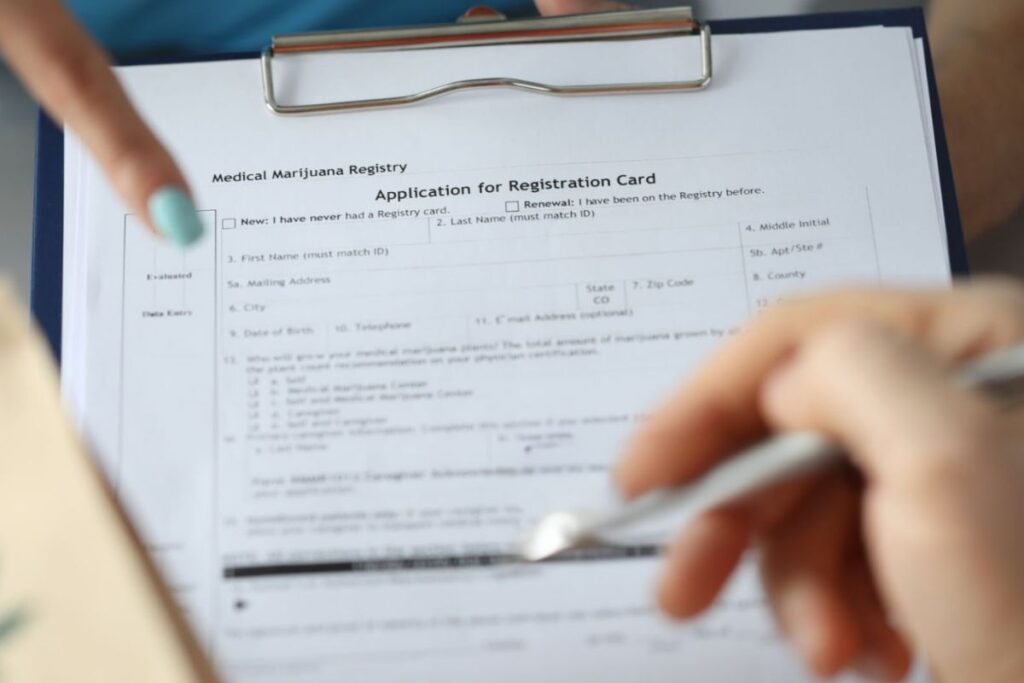
Many licensed online dispensaries accept MMJ cards for medical orders. You’ll usually need to upload your card and verify your identity during checkout.
Delivery of Medical Cannabis
In qualifying states, medical cannabis can be delivered to your home, but identification is required for the delivery. Delivery requires verification and sometimes a signature from the cardholder.
Is a Medical Card Required for Recreational Purchases?
In recreational states, adults 21 and older do not need a card to buy cannabis from a medical cannabis dispensary. However, access to stronger doses and medical strains may be restricted, and you may need to pay for those options.
Differences in Product Availability
Medical dispensaries often stock products with higher THC or CBD levels from your chosen dispensary. Patients may also have access to exclusive strains or formulations.
Online Dispensary Verification
| Step | Description | Purpose/Tools Used | User Responsibility |
|---|---|---|---|
| 1. Account Creation | Register on the dispensary’s website | Email, phone number, ID upload | Provide accurate personal and medical info |
| 2. Card Upload | Upload a copy/photo of your medical marijuana card | Secure upload portal | Ensure card is valid and not expired |
| 3. Identity Verification | Verify identity using government-issued ID | AI-based ID check, manual review | Match info on ID and MMJ card |
| 4. Physician/State Check | Some platforms validate your certification with the state registry | API access to state database or manual lookup | Consent to verification if required |
| 5. Age Verification | Ensure buyer is at least 18 or 21 (varies by state) | Digital age gate, ID scan | Use legal DOB, ensure compliance |
| 6. Order Eligibility Check | Check whether your condition/product request is valid under your MMJ status | Internal system cross-check | Order only within permitted product/quantity limits |
| 7. Approval Confirmation | Dispensary confirms card is valid and activates your access | Email/text confirmation | Wait for confirmation before placing first order |
| 8. Ongoing Verification | Re-verification required before each order or periodically | Login prompts, card expiry system | Renew card on time to avoid disruption |
Legitimate dispensaries are licensed and require age or card verification. Always ensure you’re purchasing from a state-approved and secure site.
County-Specific Medical Cannabis Programs
Some counties have added requirements for MMJ cardholders. Check with your local program to determine if there are extra forms or fees.
Minor Patients and Guardians
Minors can receive medical cannabis with the help of at least one caregiver or a legal guardian. Parents must consent and often act as caregivers in the application process.
Cannabis for Terminally Ill Patients
Terminal patients may qualify for fast-tracked approval or free medical cannabis, while rules for adult use are more relaxed. Many states offer county program finds that compassionate care programs are beneficial for these individuals.
Growing Medical Cannabis at Home

Some states allow patients to grow limited cannabis plants at home. You must still follow state guidelines, including plant limits and secure storage.
Traveling with Medical Cannabis
You cannot carry cannabis across state lines, even with a card, as it could be considered illegal. Always travel within your state and carry your MMJ card to avoid legal issues.
Legal Protection with an MMJ Card
A medical marijuana card, along with a driver’s license, provides legal protection against local law enforcement. It proves that your use is authorized for medicinal reasons under state law.
Alternatives to Medical Marijuana Cards
| Alternative | Description | Legal Status (U.S.) | Accessibility | Limitations |
|---|---|---|---|---|
| Recreational Cannabis | Legal in some states for adult use without a medical card | Legal in 24+ states (as of 2025) | Adults 21+ in legal states | Not available in all states; may have higher taxes and possession limits |
| Hemp-Derived CBD Products | Non-intoxicating products made from hemp with <0.3% Δ9-THC | Federally legal under 2018 Farm Bill | Widely available online/offline | No high; quality and regulation vary; not suitable for all medical conditions |
| THCA Products | Hemp-derived THCA flower or concentrates (non-psychoactive until heated) | Legal in some states under hemp laws | Available online in many areas | Legal grey area; may be restricted by state laws |
| Delta-8 THC Products | Mildly psychoactive cannabinoid from hemp | Legal in some states; banned in others | Online and retail in legal states | Legality is changing; less potent than Δ9-THC |
| Over-the-Counter CBD/CBG Oils | Non-prescription cannabinoids used for wellness and mild conditions | Federally legal (CBD <0.3% Δ9-THC) | Easily available | Not suitable for severe medical issues; effects not guaranteed |
| Full Cannabis Legalization | Some states allow full adult use without needing a card | State-specific (recreational laws) | Adults 21+ in legal states | Not a true “alternative” in restrictive states |
| Holistic/Herbal Remedies | Non-cannabis options like turmeric, valerian root, or kratom | Legal depending on substance | Health stores, online | May not offer the same relief; lack of regulation and research |
Some wellness cannabis products like CBD oils are available without a medical card, unlike recreational marijuana which may have different regulations. However, these often lack the potency or effects of medical cannabis.
Getting Help with the Application Process
Non-profits and cannabis advocacy groups can help guide you. Doctors and cannabis clinics also offer support services for first-time applicants.
Summary: Is a Medical Card Needed for Online Purchases?
If your state only allows medical use, a card is required to purchase cannabis for any online order, as buying cannabis without one could be considered illegal.
If your state allows recreational use, a card is not needed for standard purchases, but may unlock stronger products.
FAQ: Do You Need a Medical Card for Online Dispensary Purchases?
1. Do I need a medical card to buy cannabis from an online dispensary?
In states where medical marijuana is legal, you generally need a medical marijuana (MMJ) card to purchase cannabis from an online dispensary. However, in states with recreational marijuana laws, you may be able to buy cannabis online without a medical card, as long as you are over 21 years old.
2. Can I use a medical card from one state in another state?
No, medical marijuana cards are state-specific. A card issued in one state is not recognized in another. You must apply for a medical card in each state where you wish to purchase cannabis legally.
3. What happens if I don’t have a medical card but need medical cannabis?
If you do not have an MMJ card but need medical cannabis, you may be able to access it in states where recreational marijuana is legal. However, if medical use is the only option in your state, you will need a doctor’s recommendation and an MMJ card to legally purchase cannabis.
4. Can I apply for a medical card online?
Yes, in many states, you can apply for a medical marijuana card online through your state’s health department or a state-approved medical marijuana program website. You’ll need to provide medical records and proof of identity and residency during the application process.
5. How long does it take to get a medical marijuana card?
The time to receive a medical marijuana card varies by state, but typically it takes anywhere from 7 to 30 days after application. Some states may offer expedited services for urgent medical cases.
6. Can minors apply for a medical marijuana card?
Yes, minors can apply for a medical marijuana card with the assistance of a parent or legal guardian. The parent or guardian must often act as the caregiver and manage the minor’s cannabis use in accordance with state regulations.
7. What conditions qualify for a medical marijuana card?
Conditions that may qualify for a medical marijuana card include chronic pain, cancer, epilepsy, PTSD, multiple sclerosis, HIV/AIDS, and severe nausea. Each state has its own list of qualifying conditions, so it’s essential to check with your state’s medical marijuana program.
8. Can I buy cannabis from an online dispensary without a medical card in a recreational state?
Yes, if you live in a state that has legalized recreational cannabis, you can purchase cannabis from online dispensaries without a medical card. However, you must still be over 21 years old and follow any local regulations related to the purchase and delivery of cannabis.
9. What do I need to provide when applying for a medical marijuana card?
When applying for an MMJ card, you’ll need to provide proof of identity (such as a driver’s license), proof of state residency (like a utility bill), and medical documentation showing that you have a qualifying condition. Some states may also require a physician’s recommendation.
10. How much does it cost to apply for a medical marijuana card?
Application fees for medical marijuana cards vary by state. Fees typically range from $25 to $200. Some states offer discounts for seniors, veterans, or those with low incomes.

